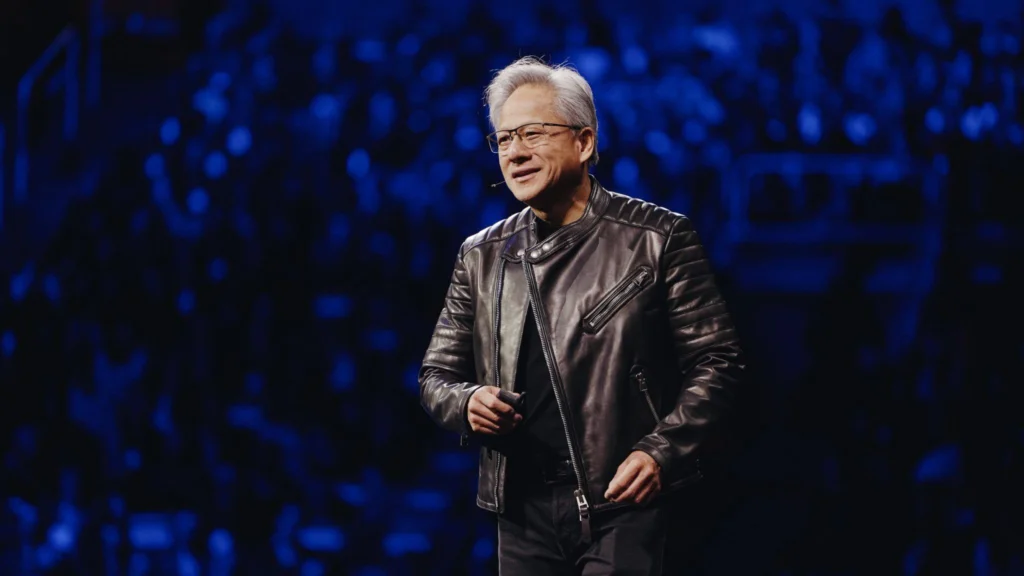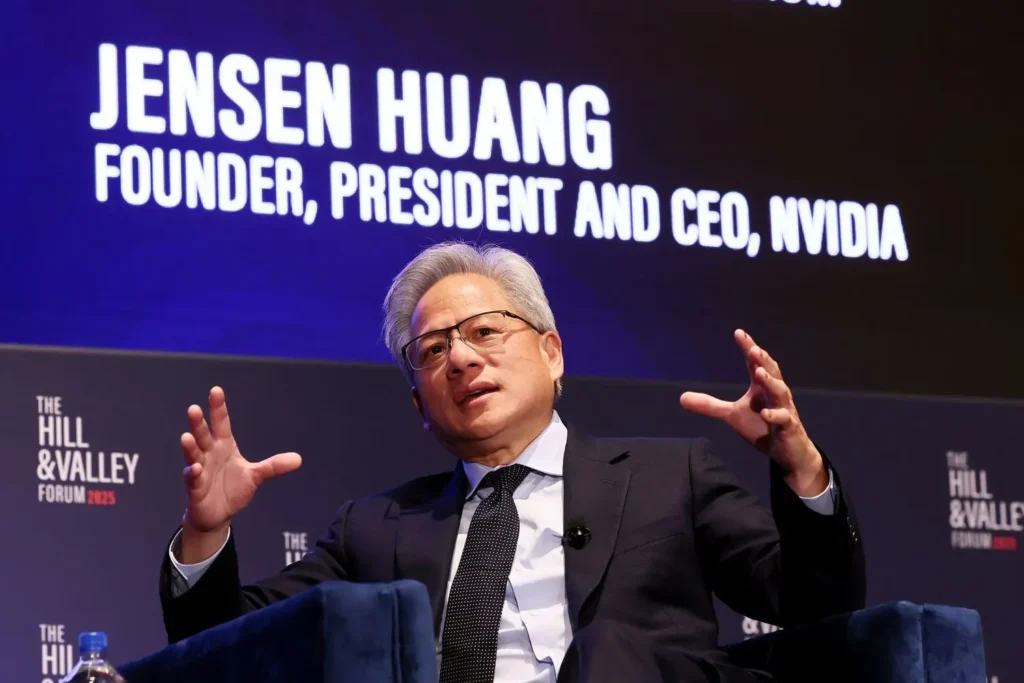Jensen Huang to Reveal Nvidia’s Latest AI Tools at Taiwan’s Computex
Nvidia CEO Jensen Huang is set to headline Taiwan’s Computex technology event with a major keynote, where he will speak about the company’s newest breakthroughs in artificial intelligence, robotics, and cloud-based systems. His talk will begin at 11:00 a.m. local time on Monday at the Taipei Music Centre and is expected to last for an hour and a half.

Figure 1: Nvidia CEO Jensen Huang (Source TechRadar)
The Computex conference, running from 20 to 23 May, is one of the most significant gatherings in the global tech calendar. This year’s edition will feature more than 1,400 companies, and it will be the first major meet-up of computer industry leaders in Asia since the trade tensions stirred between the U.S. and China.
From Graphics to Global AI Leadership
Nvidia, based in Santa Clara, California, started out as a developer of graphic cards for gaming PCs. These cards helped bring better visuals to video games and were widely popular among gamers. However, the company has undergone a massive transformation in recent years.
Thanks to the rise of artificial intelligence, particularly following the launch of ChatGPT in 2022, Nvidia has become the go-to provider of high-performance chips needed to power AI programs. Its processors are now essential for training and deploying large-scale language models and other complex applications that rely on machine learning.

Figure 2: Nvidia CEO Jensen Huang (Source: Investopedia)
This success has propelled Nvidia into a new league, with demand for its technology coming from AI developers, cloud computing providers, and research institutions. Huang’s appearance at Computex is set to underline how the company is building on this momentum to shape the next phase of digital infrastructure.
What to Expect from Huang’s Presentation
Nvidia is also pushing beyond its well-known graphics chips. The company has been working on central processing units (CPUs) that can support Microsoft’s Windows system. These new processors are built using technology licensed from Arm Holdings, known for designing energy-efficient hardware used in mobile phones and other devices.
Back in March, during Nvidia’s developer event, Huang gave a detailed explanation of how the computing landscape is changing. He noted that it’s no longer just about building giant AI models — the focus is shifting to systems that can run them smoothly in real-world environments.
During that event, Nvidia introduced a number of upcoming products. Among them was the Blackwell Ultra, a next-generation AI chip expected to be released later this year. Following that will be the Rubin series, with another line called Feynman set for a 2028 launch. These chips are designed to deliver improved performance and power efficiency, helping businesses run more advanced AI tools.
Alongside its large-scale processors, Nvidia has also developed a compact version for desktops called DGX Spark. This smaller setup is aimed at researchers and developers working on AI from their own labs or offices.
Computex’s Global Stage
Taipei’s Computex event has long been a major showcase for global tech giants. Nvidia has used the platform in previous years to launch new gaming gear. This time, the focus has shifted firmly to artificial intelligence and how it will reshape everyday technology.
Huang, known for drawing large crowds, caused a sensation at last year’s show. The media and fans trailed him throughout the venue, creating what local outlets dubbed “Jensanity.” With Nvidia’s influence continuing to grow, his presence this year is expected to draw even more attention.
Nvidia’s growth story mirrors the larger shift happening in the tech world. Artificial intelligence is no longer a side project — it is becoming central to how devices work, how companies operate, and how people interact with technology. From voice assistants to robots and cloud services, AI is at the core of the industry’s future.

